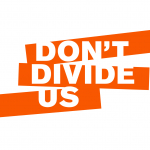Schools are being reracialised
A new group, the Scottish Union for Education (SUE), has published this new essay by DDU director Alka Sehgal Cuthbert. SUE ‘aims to involve more people from communities, including parents, grandparents and educators, to improve Scottish educational establishments as places of learning rather than sites of activism’. You can read more about SUE via Substack.
Most people in Britain are open-minded in their attitudes towards race, so much so that 89% of respondents in research from 2020 said they would be happy for their child to marry someone from another ethnic group. This is a significant improvement from earlier figures and marks the huge progress Britain has made since Enoch Powell’s apocalyptic, and wrong, ‘Rivers of Blood’ speech in 1968.
So why are schools being encouraged to accept the views that Britain is systematically racist, that white pupils are bearers of privilege, and that pupils from ethnic minorities are inevitably oppressed? That this is happening can be in no doubt.
You may not have yet experienced it first hand, and are therefore perhaps wondering whether this article’s title is itself somewhat apocalyptic. Maybe your particular child is lucky enough to attend a school where the head has not felt under intense moral pressure to ‘do something about racism’, even if pupils in the school have been playing and making friends across ethnicities with few or no problems. Maybe your child goes to a school where experienced teachers and heads, with common sense and humanity, do not think it is an educationally or ethically good idea to make children see the race of their friends and regard this as more important than their (developing) personalities. Maybe your child goes to a school that is not reaching out to one of the proliferating organisations offering equity, diversity and inclusion (EDI) ‘anti-racism’ training in order to fulfil official requirements to be ‘inclusive’ and ‘respect diversity’.
You may think none of this applies to you. But no one in authority is scrutinising the content of such courses. Nor are they checking the qualifications of the staff of these organisations or whether they have the suitable experience and ethical principles to be working in schools. There is no form of quality control, yet they are endorsed by sources of cultural and political authorities who should know better. This means that their influence will percolate across schools unless stopped.
Liz Pemberton, aka The Black Nursery Manager, offers her services as ‘an anti-racist trainer and consultant’ to help schools make sure their dressing up boxes for under 5’s are culturally sensitive. Teachers will be taught how to ‘audit’ their dressing up boxes and be told about the history of ‘yellowface’, ‘blackface’ and pantomime. Teachers are being told that it is okay, or even cutting-edge best practice, to treat individual pupils as members of a group according to ethnicity, and to tell children a historically illiterate narrative of victims and oppressors – all in the name of inclusivity and anti-racism!
The irony is that such strategies are likely to make young children hypersensitive to skin colour and interrupt the normal developmental processes of making friends. One mother told us how her 5-year old (mixed-race) daughter suddenly stopped holding the hand of her best (white) friend as they walked to school. When she tried to find out the reason, she discovered that the school had recently started a new ‘anti-racist’ strategy. This was news to her and other parents.
Another example from the secondary sector is that of Penny Rabiger, who is cofounder of BAMEed Network and influential in certain professional circles. In this clip from a recent webinar hosted by the EDI company Flair, she warns her audience of the need to ‘circumvent resistance’ and that ‘the impartiality police will come for you’, and that teachers need to break down ‘every single area of school life’ (the school development plan, professional development plans, recruitment, induction, relationships with families) in the anti-racist effort.
This is the language of someone who thinks they are at war, not that of an educator whose primary role is to contribute to the intellectual and aesthetic development of the younger generation in an educational context that respects the dignity of the individual, our common humanity and justice within a universal moral framework. The framework of critical social justice, articulated clearly by Rabiger and adopted by many EDI organisations, is a highly politically partisan, intolerant ideology that brooks no dissent or alternative approaches and therefore runs counter to important democratic principles.
There are two other points to note in this example. The first is Rabiger’s allusion to the need ‘to circumvent resistance’. This is reminiscent of Brighton and Hove’s strategy meeting in November 2020 to discuss their Racial Literacy 101 Strategy, which is based on core ideas from critical race theory. In a Don’t Divide Us detailed case study, we expose the council’s minimal consultation with its citizens, indicative that they regard anyone who disagrees as ‘resistance’ or as ‘obstacles’ to be overcome – including parents from minority ethnic groups. The reluctance of many schools to show parents the materials being used for ‘anti-racism’ lessons or lessons on sex, sexuality and gender and related training is becoming more obvious by the day. In producing our report on councils’ use of third-party organisations offering ‘anti-racist’ training for schools, we issued over 172 freedom of information requests. Over 54% of councils contacted either did not respond or provided insufficient information, often citing commercial interests as a reason to withhold materials.
The second point to note is Rabiger’s hostility to impartiality (‘the impartiality police will come for you’!). This particular criticism is often closely allied to a hostility to colourblind approaches. Both impartiality and the colourblind anti-racist approach are assumed to be at best naive but more often a sign of privilege or assertions that themselves perpetuate oppression. At a political level, educator-activists who say this are often venting their knee-jerk anti-Conservative inclinations. In 2020 the Minister for Women and Equalities, Kemi Badenoch, issued a stern reminder to schools of their duty to teach impartially. It caused a furore among some academics, who saw it as an attack on educators’ professional autonomy. But in making such protests, they forget that schools are different from institutions providing higher education. One main difference is that the relationships in schools – primarily between adult staff and younger pupils – are not those of adult individuals with equal rights. Most of us tacitly understand that children do not have equal rights to those of adults, because they need time to develop into adulthood. This understanding is formalised in law (hence the minimum ages of sexual consent, learning to drive and so forth).
Legally, and by custom, parents are considered the primary source of care, nurture and development of children. Schools in England have an important but distinct role, but one which depends on the trust of parents, and as specified in Section 9 of the Education Act 1996, with the consent of parents and in accordance with their wishes. Sections 406 and 407 of the same Act stipulate that schools have a duty to teach impartially; where contested views are part of the lesson, alternatives should also be presented, including opposing views. Instead, we have a situation where teachers are being encouraged to reject colourblind universal approaches (i.e. the belief that skin colour is not the most meaningful or important aspect of our sense of self) by edu-activists who see themselves as harbingers of some utopian fantasy based on a cocktail of statistics and social justice moralising.
In reality, we are seeing a highly racialised outlook being presented as normal, or even good, practice. Witness the accolades heaped on Channel 4’s documentary ‘The School That Tried to End Racism’, where ‘anti-racist’ experts observed a young child visibly distressed at being separated out into racial affinity groups and commented that at least the pupil was ‘doing the work’. One teacher at a school that is paying Flair to become an ‘anti-racist’ school told me that one of the pupils asked, ‘Why are we excluding our white friends?’ Truly it seems that just when skin colour was less important than ever in Britain, this new ideology of ‘anti-racism’ is reracialising our society – it is divisive, unethical and politically dangerous. That is why Don’t Divide Us is focusing on schools. We are launching a petition – Educate Not Indoctrinate – and look forward to working alongside like-minded friends including the Scottish Union for Education.

